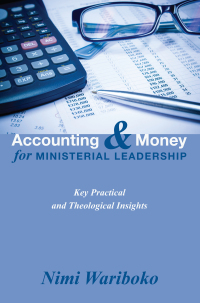Required information [The following information applies to the questions displayed below.] Most Company has an opportunity to invest in one of two new projects. Project Y requires a $340,000 investment for new machinery with a five-year life and no salvage value. Project Z requires a $340,000 investment for new machinery with a four-year life and no salvage value. The two projects yield the following predicted annual results. The company uses straight-line depreciation, and cash flows occur evenly throughout each year. (PV of $1, FV of $1. PVA of $1, and FVA of $1 > (Use appropriate factor(s) from the tables provided.) Project X Project 2 $390,000 $312,000 Sales Expenses Direct materials Direct labor Overhead including depreciation Selling and administrative expenses Total expenses Pretax income Income taxes (301) Net income 54,600 39,000 78,000 46,800 140,400 140, 400 28,000 28,000 301,000 254,200 89,000 57,800 26,700 17,340 $ 62,300 $ 40,460 Determine each project's net present value using 8% as the discount rate. Assume that cash flows occur at each year-end. (Round our Intermediate calculations.) Project Y Chart values are based on: Select Chart Amount PV Factor Present Value Required information The following information applies to the questions displayed below) Most Company has an opportunity to invest in one of two new projects. Project Y requires a $340,000 Investment for new machinery with a five-year life and no salvage value. Project Z requires a $340,000 investment for new machinery with a four-year life and no salvage value. The two projects yield the following predicted annual results. The company uses straight-line depreciation, and cash flows occur evenly throughout each year. (PV of $1. FV of $1, PVA of $1, and FVA of $1 (Use appropriate factor(s) from the tables provided.) Project Y Project 2 $ 390,000 $312,000 Sales Expenses Direct materiala Direct labor Overhead including depreciation Selling and administrative expenses Total expenses Pretax income Income taxes (308) Net income 54,600 78,000 140,400 28.000 301 000 89,000 26,700 $ 62,300 39,000 46,800 140,400 28,000 254,200 57,800 17,340 $ 40, 460 2. Determine each project's payback period. Choose Numerator: Cost of investment Payback Period Choose Denominator: Payback Period Payback period 0 Project Y Project 2 0 Required information [The following information applies to the questions displayed below) Most Company has an opportunity to invest in one of two new projects. Project Y requires a $340,000 investment for new machinery with a five-year life and no salvage value. Project Z requires a $340,000 investment for new machinery with a four-year life and no salvage value. The two projects yield the following predicted annual results. The company uses straight-line depreciation, and cash flows occur evenly throughout each year. (PV of $1. FV of $1. PVA of $1, and FVA of $1 ) (Use appropriate factor(s) from the tables provided.) Project Y Project z $ 390,000 $312.000 Sales Expenses Direct materials Direct labor Overhead including depreciation Selling and administrative expenses Total expenses Pretax income Income taxes (300) Net income 54,600 78,000 140,400 28,000 301,000 89,000 26,700 $ 62,300 39,000 46,800 140,400 28,000 254,200 57,800 17,340 $ 40, 460 3. Compute each project's accounting rate of return. Accounting Rate of Retum Choose Denominator: Choose Numerator: Accounting Rate of Return Accounting rate of return 0 Project Y Project z 0









